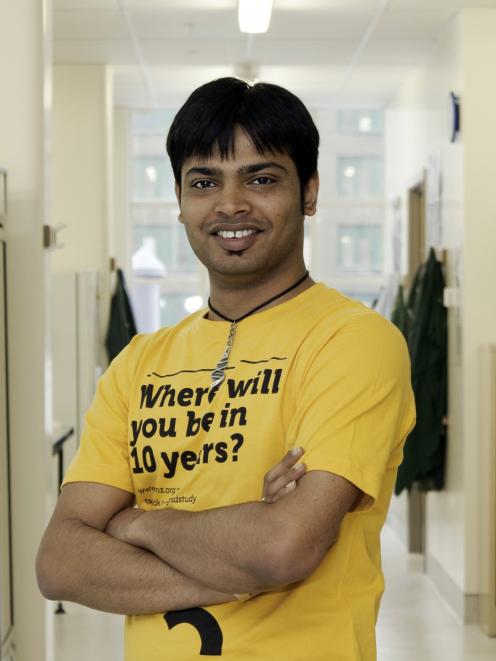
What the University of Otago’s Aniruddha Chatterjee and his colleagues discover could lead to improvements in the way we diagnose and treat cancer.
Cancer remains the world’s single biggest cause of death: in New Zealand, it is estimated that just one out of three people diagnosed are able to be cured.
Metastasis, or the spread of cancers to distant organs, is responsible for about 90% of cancer-related deaths, yet researchers still have not been able to define exactly what it is that causes primary cancer cells to become metastatic.
While advances in science have enabled us to pinpoint genetic causes of primary cancers, genetic mutations do not appear to cause the spread.
This suggested that DNA modifications that did not directly alter the DNA sequence — but instead changed the frequency by which a cell used specific genes — were important in influencing how metastatic cancer cells behaved.
Researchers call the process epigenetic modification.
In his new study, Dr Chatterjee wants to reveal how this process altered primary cancer cells to become metastatic.
Dr Chatterjee, an expert in epigenetics and molecular biology, will attempt to pinpoint changes in DNA modifications and gene expression patterns between primary tumour cells, tumour cells circulating in the blood and metastatic tumour cells, all from the same patients.
This could lead him to the ultimate epigenetic origin of metastasis.
Using state-of-the-art epigenomic tools, such as single-cell-level analysis of tumour cells and new epigenetic editing, he will identify drivers of tumour metastasis and specifically engineer these ‘‘epigenetic drivers’’ in the lab to work out how the changes deciphered cancer cell function.
Dr Chatterjee said many people were working on primary cancer — when a tumour remained in its site of origin — while others were working on how such cancers were able to invade other parts of the body.
‘‘My research aims to join these important stages of cancer together to work out the whole story about why, and how, a primary cancer cell spreads in the body and becomes fatal,’’ he said.
‘‘I will use cutting-edge epigenomic tools, single-cell-level analysis on tumour cells from a patient’s blood and modern molecular manipulation methods to answer this fundamental question.’’
The study, being supported with an $800,000 Rutherford Discovery Fellowship administered by Royal Society Te Aparangi, could pave the way for a new wave of research investigating epigenetic patterns in cancer.
Dr Chatterjee — an affiliate investigator for the Maurice Wilkins Centre, China-New Zealand Health Research Centre and the National Science Challenge programme, Healthier Lives — has already made his mark on cancer research.
In his PhD work, he pioneered the first analytical pipeline for large-scale DNA methylation analysis in Australasia and documented some of the first DNA methylation maps in human tissues and zebrafish, which share 70% of our genetic code.
